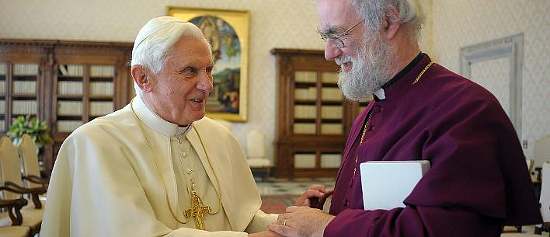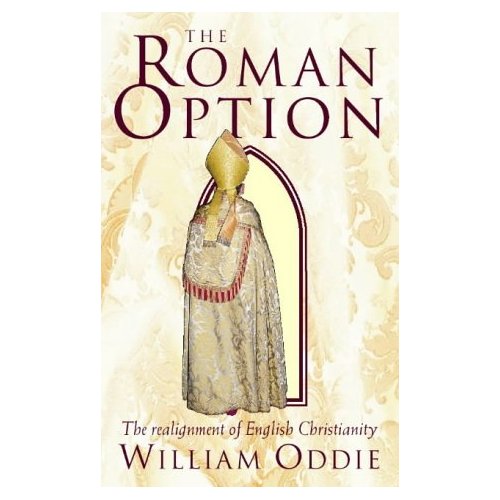Økumenisk gudstjeneste på Lunden kloster
For noen dager siden leste jeg på katolsk.no om følgende arrangement:
«Onsdag den 20. januar, kl. 19.00, holdes det økumenisk bønnegudstjeneste på Lunden kloster. Den økumeniske bønnegudstjenesten har siden 1972 blitt feiret i forbindelse med ‘Bønneuken for kr isten enhet’, i samarbeid med Tonsen menighet. I år er det biskop Ole Christian Kvarme som holder preken. Det blir som vanlig kirkekaffe med underholdning etter gudstjenesten.»
Jeg var der i går – av tre grunner:
1. Jeg ville gjerne være med på et økumenisk arrangement i løpet av bønneuka for kristen enhet også i år.
I Bergen var jeg hvert år med på et par arrangementer i denne bønneuka – ganske vellykka må jeg si (og for økumenikk-skeptikerne som leser denne bloggen, så ble de gjennomført «helt etter boka»). Jeg husker med glede spesielt de 7 åra jeg deltok som katolsk prest på økumenisk gudstjeneste sammen med søstrene på Maria Minde (ved Handelshøyskolen i Bergen) og den lokale Biskopshavn menighet i Den norske kirke.
I Stavanger var disse møtene i januar litt mindre vellykka, og ble faktisk lagt ned. Men der klarte vi på den annen side å starte samlinger av pastorer i alle menigheter, som møttes et par ganger i semesteret.
2. Jeg vile gjerne besøke Lunden kloster – jeg hadde ALDRI i mine 15 år som katolikk vært der før.
I mine 14 1/2 førse år som katolikk bodde jeg på Vestlandet, og det er faktisk et stykke til Oslo – og når jeg en sjelden gang var i Oslo, hadde jeg alltid noe annet på timeplanen. Jeg tenkte litt på å være på Lunden under mine retretter før diakon- og prestevielsen, men valgte da heller Franciskus-søstrenes senter på Voss.
Det var hyggelig å være på Lunden i går, og få hilse på mange av søstrene – og jeg håper å få komme dit igjen, og bli bedre kjent med dem.
3. Jeg ville gjerne treffe biskop Kvarme.
Jeg ble kjent med Ole Christian Kvarme i 1977, da vi begge bodde i Israel; jeg var der i seks måneder (pluss en måned i april 1980), mens han var der til sammen ca 10 år. Siden har vi møtt hverandre av og til med nokså ujevne mellomrom, sist gang ved bisop Bernt Eidsvigs ordinasjon.
Jeg hilste i går også kort på den lokale sogneprest og prost, og bl.a. på professor Berge Furre – som jeg takka for «Soga om Lars Oftedal, 2 bd., 1990», ei bok som har betydd svært mye for min kirkeforståelse.


 I kommentaren til Thompsons stykke referes det også til ei bok som kom ut i 1997 (og som jeg leste da), om katolske biskoper og presters respons til de mange engelske preste-konvertittene i England i 1992/93 – og en mulig måte å løse den unfordringa på om den skulle oppstå på nytt.
I kommentaren til Thompsons stykke referes det også til ei bok som kom ut i 1997 (og som jeg leste da), om katolske biskoper og presters respons til de mange engelske preste-konvertittene i England i 1992/93 – og en mulig måte å løse den unfordringa på om den skulle oppstå på nytt.